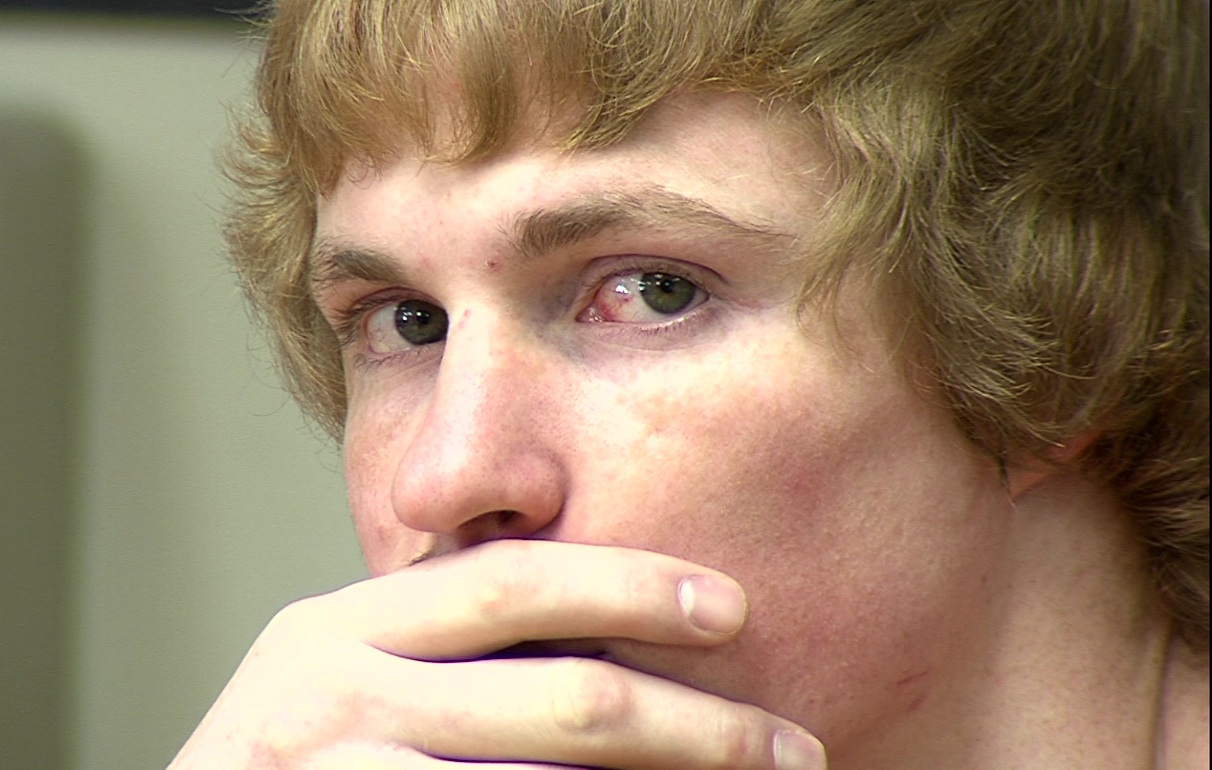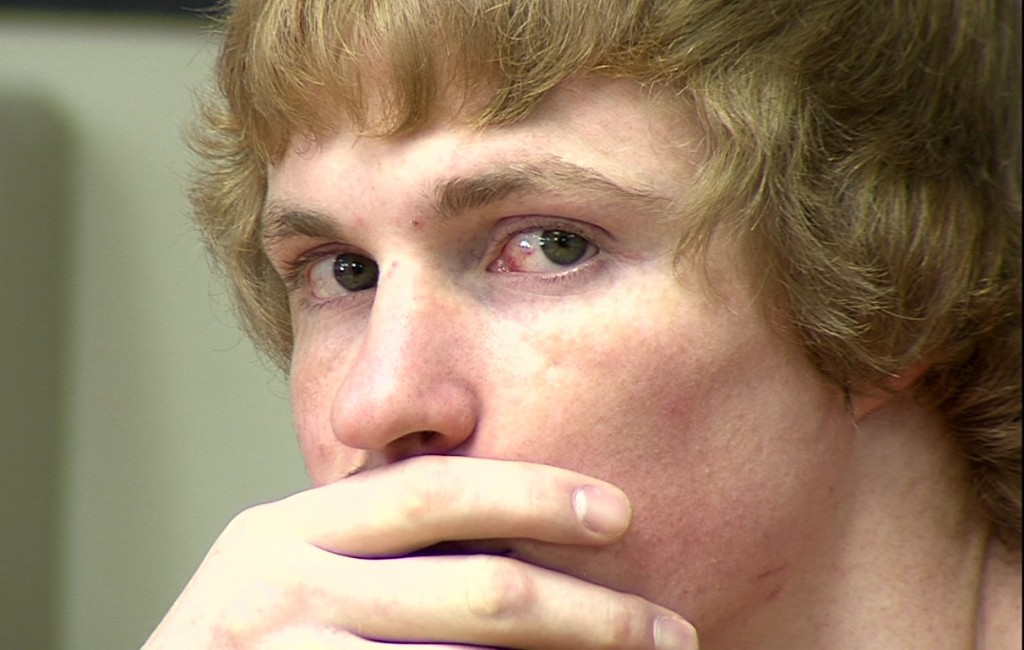[media id=13 width=320 height=240]
While some Wendover residents have expressed outrage that Kody Patten may have well avoided the death penalty by taking a plea bargain for many Nevada families, relatives of victims of men now on death row, the ‘ultimate punishment’ is cruel joke.
Since Nevada reinstituted the death penalty in 1976 a dozen men have been executed but only one was not a volunteer.
And of the 80 or so men now on death row years if not decades remain in the appeals process before they can be executed.
Instead of closure for the families of the victim a death sentence is an open wound that must be revisited with every appeal, every legal motion. While the murderer of their loved ones gains notoriety, fans, and a perverted kind of celebrity other inmates can only dream about.
Patten threw away chance to gain that celebrity by taking the plea bargain and also by pleading guilty severely limited his rights to appeal.
“It may not seem like much now,” said an attorney close to the case. “But ask the family of Nancy Griffith what they think of how the death penalty is enforced in Nevada.”
It was 33 years ago when 16 year old Nancy Griffith of Ely was murdered in the most horrific way by Joseph Ybarra. 18 months later Ybarra was received the death penalty from a White Pine County jury and the Griffith family expressed satisfaction that justice was done.
[media id=1 width=320 height=240]
Three decades later Ybarra is still alive, still appealing, and still enjoying life in the nicest place in the prison- death row.
While most critics place the blame of the lengthy appeals process on the Ninth Federal Circuit Court blame must also be shared by the Nevada Supreme Court.
Ybarra for example has appealed and has his sentence delayed no less than five times by the Nevada Supreme Court including his most latest attempt.
In fact it is the interplay between appealing to the state then appealing to the federal level that has been perfected by Ybarra and other long serving death row inmates.
 “The way the system is set up you can send an appeal to the state and then appeal the decision to the feds,” said one defense attorney who declined to be identified. “It can be virtually endless.”
“The way the system is set up you can send an appeal to the state and then appeal the decision to the feds,” said one defense attorney who declined to be identified. “It can be virtually endless.”
Apart from staving off death by lethal injection which is reward in itself many death row inmates also out hope that the death penalty itself will be abolished as it was in 1974.
While support for it especially in Nevada and other western states has never fallen below 60 percent there are signs that on the federal level could well indeed abolish the death penalty. Last year the US high court ruled that executing minors and mental defectives was cruel and unusual punishment.
Ybarra was not the only resident of death row to seek an out because of ruling literally hundreds of appeals either directly or indirectly related to the federal ruling.
“Every time there is a federal ruling it opens another door for other death row inmates.” The attorney continued. “They are probably not going to win but winning isn’t the only objective the real point is to gain more time.”
More time for the high court for the court to abolish the death penalty altogether and/or more for the public to grow disgusted with the system and scrap the death penalty as unworkable.
While the death penalty is still supported by an overwhelming percentage of the population support is waning even in Nevada when the sentence takes decades to carry out.
 “It is especially frustrating for a guy like Ybarra,” said former White Pine county Sheriff Bernie Romero in 2006. “Here is a guy who confessed to the killing, was found guilty with overwhelming amount of evidence. Sentenced by a jury of his peers and now spend 25 years appealing.”
“It is especially frustrating for a guy like Ybarra,” said former White Pine county Sheriff Bernie Romero in 2006. “Here is a guy who confessed to the killing, was found guilty with overwhelming amount of evidence. Sentenced by a jury of his peers and now spend 25 years appealing.”
Romero was a newly minted detective when he arrested Ybarra in 1979, he retired from law enforcement after losing his bid for a third term in 2006.
Ybarra does not even have a claim of redemption the much more famous Stanley “Tookie” William’s has made in an effort to win clemency in California.
He is described as a wimp and a braggart by both correctional officers and other inmates on death row who sometimes tries to commit suicide but never quite succeeds or has a last minute change of heart.
In his over quarter of a century incarcerated he has done very little except study his case. And if one had to serve time one could do worse than Ely’s Death row. Although conditions are Spartan they are considered the most comfortable in the whole prison.
“You have to understand this is our home,” Ybarra said in an interview with the High Desert Advocate in 1992. “We aren’t going to be gone for five or ten years
The death row pod had at the time its own weight set, television and eating area and it did have a homey feel. It was also cleaner than much of the rest of the prison and because it is death row much more secure than the general population.
Even though the general population of the prison is locked down 23 hours out of a day the prison averages about two murders a year and hundreds of serious physical assaults.
Among the things Ybarra has not done was to study to become a priest as he promised to do to if the jury gave him life without parole instead of the death penalty.
“I am very sorry for what I’ve done,” he pleaded back in 1981 “I truly regret sacrificing Nancy for Satan. I want to make up for all the pain and suffering I’ve caused my parents. I wish to God I could do something to make it up to Nancy’s mother, sister, and brothers. If you give me life in prison, I could further my education and get involved with the church like I used to. I could study and become a priest like I’ve wanted to since I was little. Please give me life in prison, I beg of you, don’t give me the death penalty.”
If Ybarra had been spared the death penalty he would have been just another aging forgotten inmate in the general population without the strange kind of celebrity he garners every two or three years.
Far from satisfaction that Nancy Griffith received justice her family has grown weary of Ybarra’s appeals and feels betrayed by the system, said sister in law Robin Griffith
 “We’re not vengeful people, but the courts gave him the death penalty and 30 years later he’s still appealing. Every time we find out he has another appeal we relive this.”
“We’re not vengeful people, but the courts gave him the death penalty and 30 years later he’s still appealing. Every time we find out he has another appeal we relive this.”
She said the family would have been happier with a life sentence.
“At least then we could have moved on at some point,’’ Griffith said. “My mother-in-law panicked every time he appealed.”


